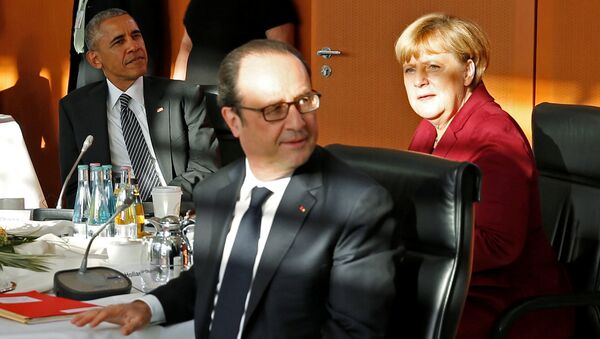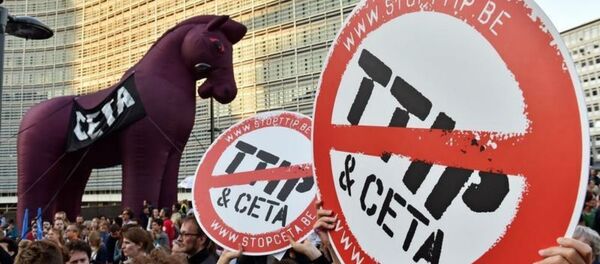Obama held final talks with German Chancellor Angela Merkel, in Berlin, alongside French President Francois Hollande, UK Prime Minister Theresa May, Spanish Prime Minister Mariano Rajoy, and Italian Prime Minister Matteo Renzi.
"The commitment of the United States to Europe is enduring and is rooted in the values we share" —@POTUS in Berlin, Germany pic.twitter.com/GtOS8UVR9S
— The White House (@WhiteHouse) November 18, 2016
In a statement released following the meeting, the White House said: "The leaders agreed on the necessity of working collectively to move the transatlantic agenda forward, particularly on bringing stabilization to the Middle East and North Africa, as well as securing diplomatic resolution to the conflicts in Syria and eastern Ukraine.
"The leaders also affirmed the importance of continued cooperation through multilateral institutions, including NATO," the White House added.
Merkel's choice of guests at what will be seen as the "last supper" summit with Obama is noteworthy, given Obama's failure to deliver on so many fronts.
Special Relationship?
UK PM Theresa May stands out as being one of the two most influential women in the EU at the moment — the other being Merkel.
May's predecessor, David Cameron, enjoyed a very close relationship with Obama.
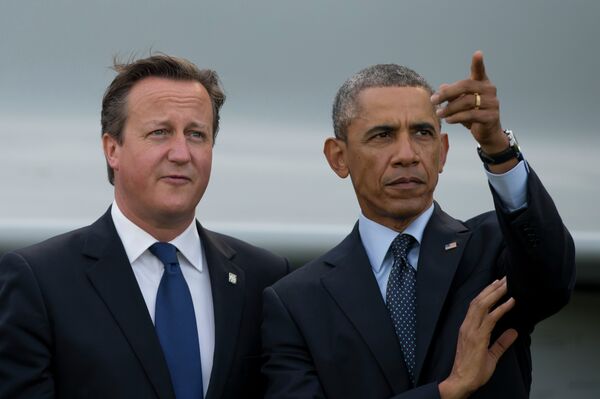
Cameron hired Jim Messina as senior adviser to his Conservative Party ahead of the last election in 2015. Messina had been the White House Deputy Chief of Staff for Operations under Obama from 2009 to 2011. Cameron won a slim majority at that election.
However, Cameron's gambit to get Obama to go to Britain and put the case of Britain remaining in the EU — ahead of the Brexit referendum, warning that the UK would "go to the back of the queue" in any future trade negotiations if it left Europe — completely backfired, leaving Cameron politically dead and Obama tarnished.
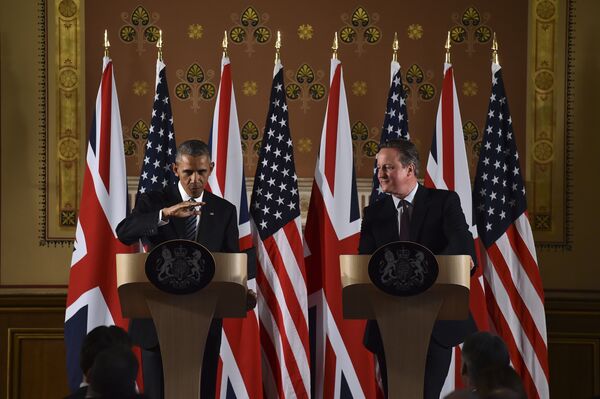
Theresa May will have to plow her own furrow with Trump — who left her some way down the list before calling her following his win, November 9, and who has rolled back from overusing the phrase "special relationship" with the UK.
German Spies
Merkel herself has a few disappointments in Obama.
He failed to close Guantanamo Bay — as may in Germany wanted him to do, in following up his pre-presidential promise. He was also implicated in the use of German airbases in the use of drone attacks in the Middle East, which went against the post-war German philosophy of non-military intervention abroad.
“Democracy is hard work.” —@POTUS https://t.co/Z3rd8MYVSM
— The White House (@WhiteHouse) November 17, 2016
Most of all, Obama's administration drew anger over the collaboration between the US National Security Agency (NSA), the UK intelligence service GCHQ and the German spy agency BND over the use of mass surveillance to intercept communications on German citizens, companies, politicians and — allegedly — Merkel herself.
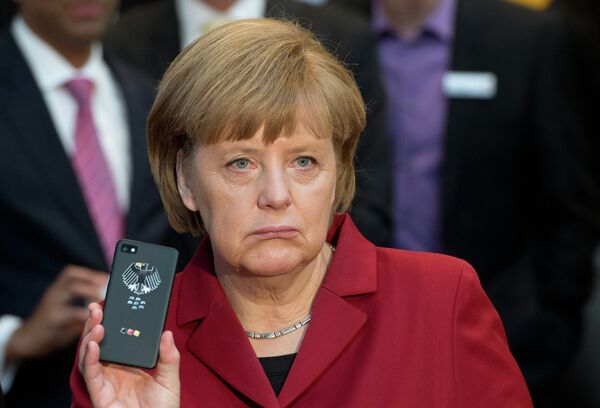
TTIP, NATO Divisions
Meanwhile, Merkel, May and the other leaders — Hollande, Rajoy and Renzi — will all have to pick up the remains of the faltering Transatlantic Trade and Investment Partnership (TTIP) trade deal that Obama put so much of his weight behind.
He wanted to create the world's biggest tariff free zone between the EU and the US by the end of his presidency — it failed.
TTIP will not have to wait until Trump deems fit to blow off the dust on the millions of pages of paperwork in Brussels and Washington to decide if the deal works for the US — a "red line" he has drawn over all such trade deal, which he instinctively disapproves of for working against the interest of US employment and manufacturing.
Meanwhile, all EU leaders will be aware that Trump has made NATO a major live issue — demanding Europe pays its way in the military alliance, with the veiled threat that the US is no longer prepared to be an umbrella peacekeeper for the whole of Europe, at a time when the EU is facing an uneasy standoff with Russia over Ukraine.
Obama will leave Berlin and his EU allies knowing that much of his "transatlantic agenda" remains disappointingly unfulfilled or even broken.
One agenda closes and another opens, but few in Europe yet know what Trump's initial draft looks like, which is a first in the recent history of US-European relations.

